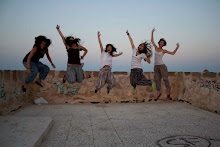what's up, what's good, what's poppin it's ya girl janie
In sociology, there's a concept called cultural capital. Culture as the phenomenon of concerted action and activity - collective action. It allows us to plan and coordinate our lives. According to French sociology and philosopher Bourdieu, capital, in a nutshell, is accumulated labor. It is both material and embodied. More so, since sociologists love to talk about inequality, capital is one way to explain it. Cultural capital altogether is specialized skills and knowledge - unconsciously enacted types of speech, mannerisms, accents, styles, etc. that express group membership. Cultural capital requires an investment of time so that it becomes embodied as a long-lasting disposition of the mind and body. This then allows the individual to act with ease because that particular speech, mannerism, style, or etc. becomes second nature to them. That ease and comfortability then enable mobility. Therefore, cultural capital is necessary for surviving and navigating one's environment.
With that small and probably unnecessary spiel in mind, I now proceed to ranting about something that has dominated my head space for weeks - how incredibly frustrated and hopeless I feel being unable to speak Spanish in Spain.
I think language is something people often take for granted sometimes and you don't realize how incredibly important of a cultural capital it is until you are relocated into an unfamiliar country that speaks an unfamiliar language. I've had a rocky relationship with language my entire life. Basically, it's been a major source of anxiety in my life. Like any other ignorant child in Saturday morning Chinese school, learning Mandarin was never a priority. Fast forward to high school, despite six years of Chinese classes, I retained little to nothing. This may be because of: norms around desirability (English as the equivalent to success, assimilation and practicality), shitty public school teachers, a subconscious refusal to embrace and appreciate my heritage, perfectionism, a subconscious fear of failure inhibiting expansion, or just plain laziness and lack of self-discipline, to be honest, Or a combination of all. Over time, having taken for granted the opportunity and importance in learning Chinese ultimately landed me in a grieving process still yet to be resolved - grieving for the absence of communication between me and my family, grieving for the lost of a core part of my identity.
I have considered enrolling in Spanish courses back at Cal because I knew I wanted to study abroad in a Spanish speaking country. I also had an interest in learning Spanish for future travels. But one dilemma that held me back from moving forward with action was: I can't move beyond trivial talk with my grandparents and personal conversations with my mom were never a thing. Why would I put all my heart and effort into learning another language - when I don't even know my own? This one question of reconnecting with my cultural roots or pursuing a completely different lingual interest has left me floating in a liminal space for all these years and arriving in Spain has confronted me, with a hearty slap in the face, of my relationship with language in which I have remained stagnant in. Without the crucial cultural capital of Spanish proficiency, I found myself lacking a self-sufficiency that further distanced myself from the community here in Guardamar.
A blank face and awkward haste sum up most of my interactions with the Guardamar locals. Unable to move beyond "Hola, que tal?," I am oh so grateful for friends who have been willing to translate for me. Yet, there's always the feeling of not wanting to be a bother having that person repeat every single line. In the past few days, the class and I had the privilege to enter an archaeologist site, receive hands on experience, and learn from the archaeologists. The opportunity was right in front of me, in my reach, yet my inability to mutter a single word rendered me silent. It was very reminiscent of countless silent encounters with my grandparents back at home. Another missed opportunity to learn to my fullest was incredibly heartbreaking.
My lack of Spanish fluency resulted in my lack of ease in my day to day movement. From the uncomfortable stares from the old white men outside the Pension (or anywhere in Spain, really), I already stand out as an exotic spectacle of the East. The additional inability to communicate and immerse has dampened my experience abroad. Although this experience has left me feeling ungrounded, there have been a couple things in Guardamar that have felt familiar. Small day to day rituals such as getting coffee every morning (Bless Movellan's pepito de tenera and my boy Antonio for knowing my coffee order) and going to the mercadona are comforting to have in such an different terrain.
too lazy to write up a meaningful conclusion so thank you for tuning into my unsolicited word vomit. my next blog post will be on a much lighter topic i promise. or to be more exact, person, not topic. and who else is more deserving of a blog post than the man, the myth, the legend....... Bernie!!!!!!! <3333 p="">





